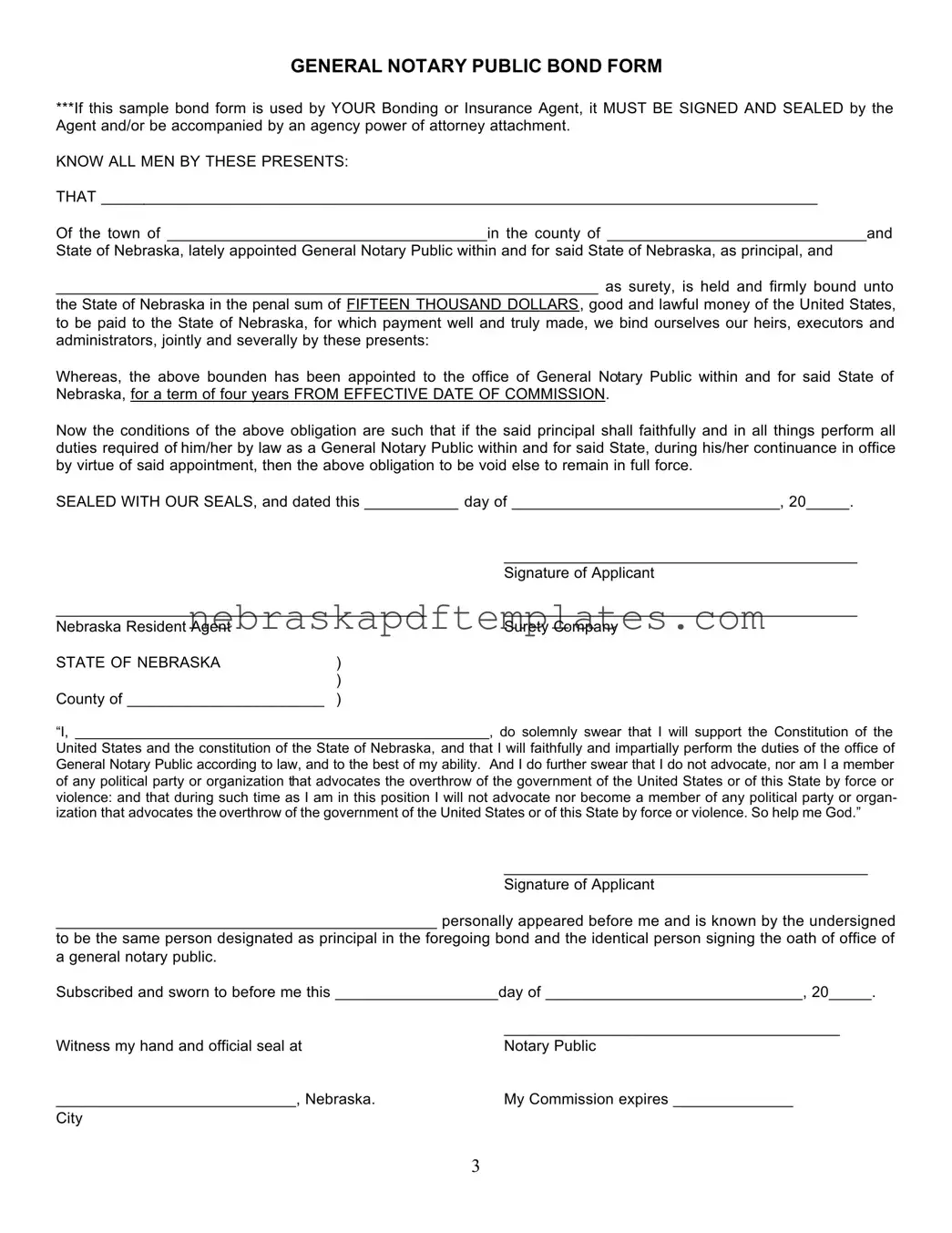Blank Notary Public Bond Nebraska PDF Template
The Notary Public Bond Nebraska form is a crucial document that ensures a newly appointed notary public is financially accountable for their duties in Nebraska. This bond, which amounts to fifteen thousand dollars, is a promise to the state that the notary will perform their responsibilities faithfully and according to the law. To get started with this essential form, click the button below.
Access Editor Here

Blank Notary Public Bond Nebraska PDF Template
Access Editor Here
Finish your form now
Finalize Notary Public Bond Nebraska online — edit, save, and download effortlessly.
Access Editor Here
or
➤ Notary Public Bond Nebraska
